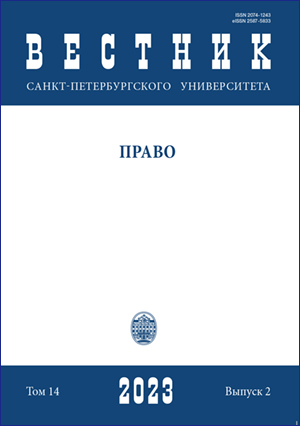Axiological ground of labor law (experience of the Republic of Belarus and the Russian Federation)
DOI:
https://doi.org/10.21638/spbu14.2023.204Abstract
The article attempts a comprehensive analysis of the axiological principles of labor law, based on the legislative experience and law enforcement practice of the Republic of Belarus and the Russian Federation. In the introduction, the authors define the concept of the axiology of labor law as part of the philosophy of labor law. The scientific discussion about the ideas, goals and values of labor law, existing as in the Western science of labor law, is demonstrated. The following parts of the article explore the key values and principles of labor law with value content, which are most important for the branch of labor law. Special attention is paid in the article to the principles of freedom of labor and freedom of the labor contract, the prohibition of forced labor. The problem of “golden parachutes”, which is relevant for modern Russia, is touched upon, which contradicts the idea of social justice. The norms of the labor legislation of the Republic of Belarus and the Russian Federation are compared with international labor standards formed within the framework of the International Labor Organization. Concrete proposals are made to improve the labor legislation of the Republic of Belarus and the Russian Federation in the direction of ensuring the above-mentioned legal principles with evaluative content, as well as to achieve the goal of ensuring the quality of working life of employees and other categories of workers, including employees engaged under fixed-term employment contracts (contracts) and various categories of self-employed persons. In conclusion, ideas on further harmonization of the legislation of the Republic of Belarus and the Russian Federation, with other member states of the Eurasian Economic Union are formulated.
Keywords:
axiology, labor law, values, freedom of labor, freedom of labor contract, prohibition of forced labor, employees, employers
Downloads
References
Downloads
Published
How to Cite
Issue
Section
License
Articles of "Vestnik of Saint Petersburg University. Law" are open access distributed under the terms of the License Agreement with Saint Petersburg State University, which permits to the authors unrestricted distribution and self-archiving free of charge.






